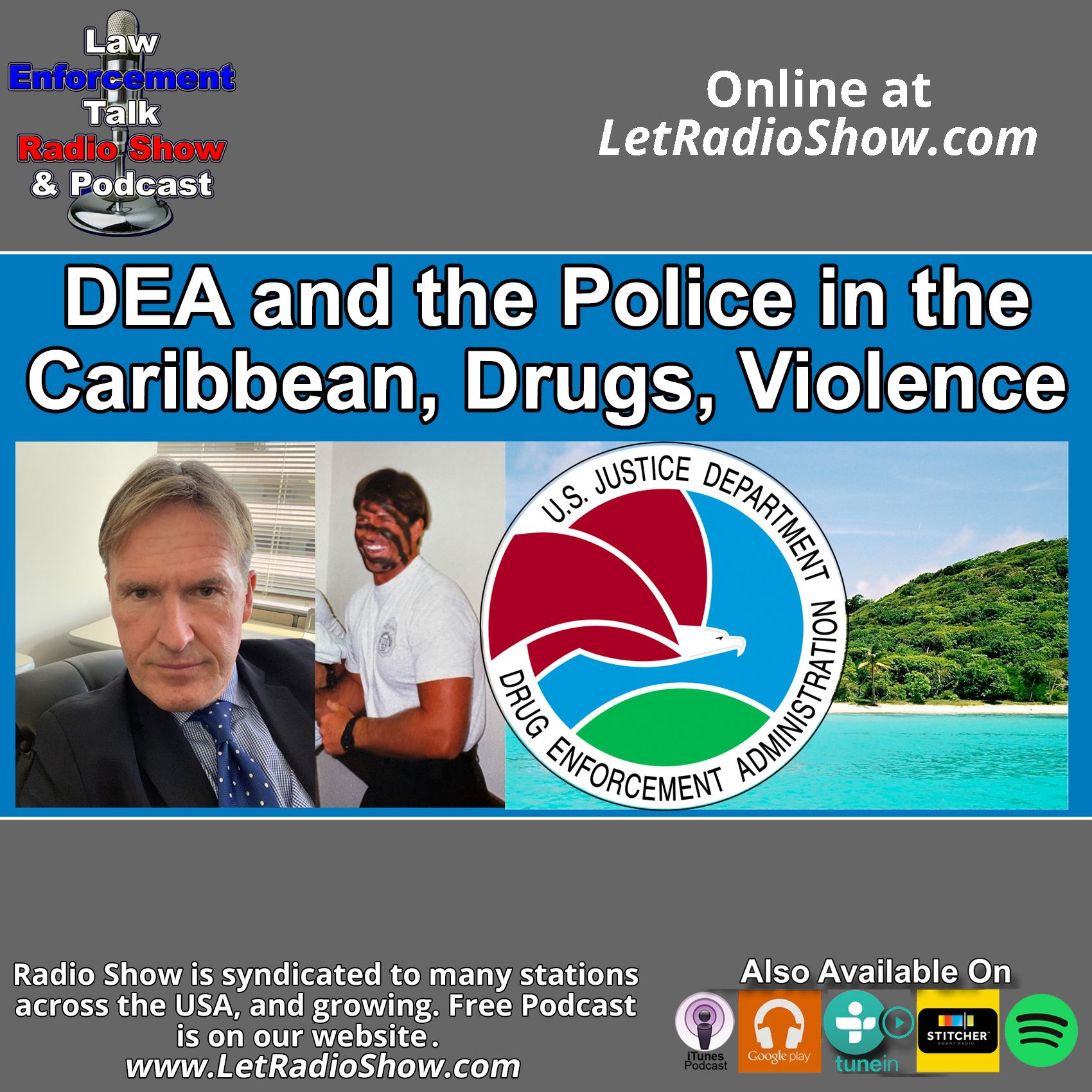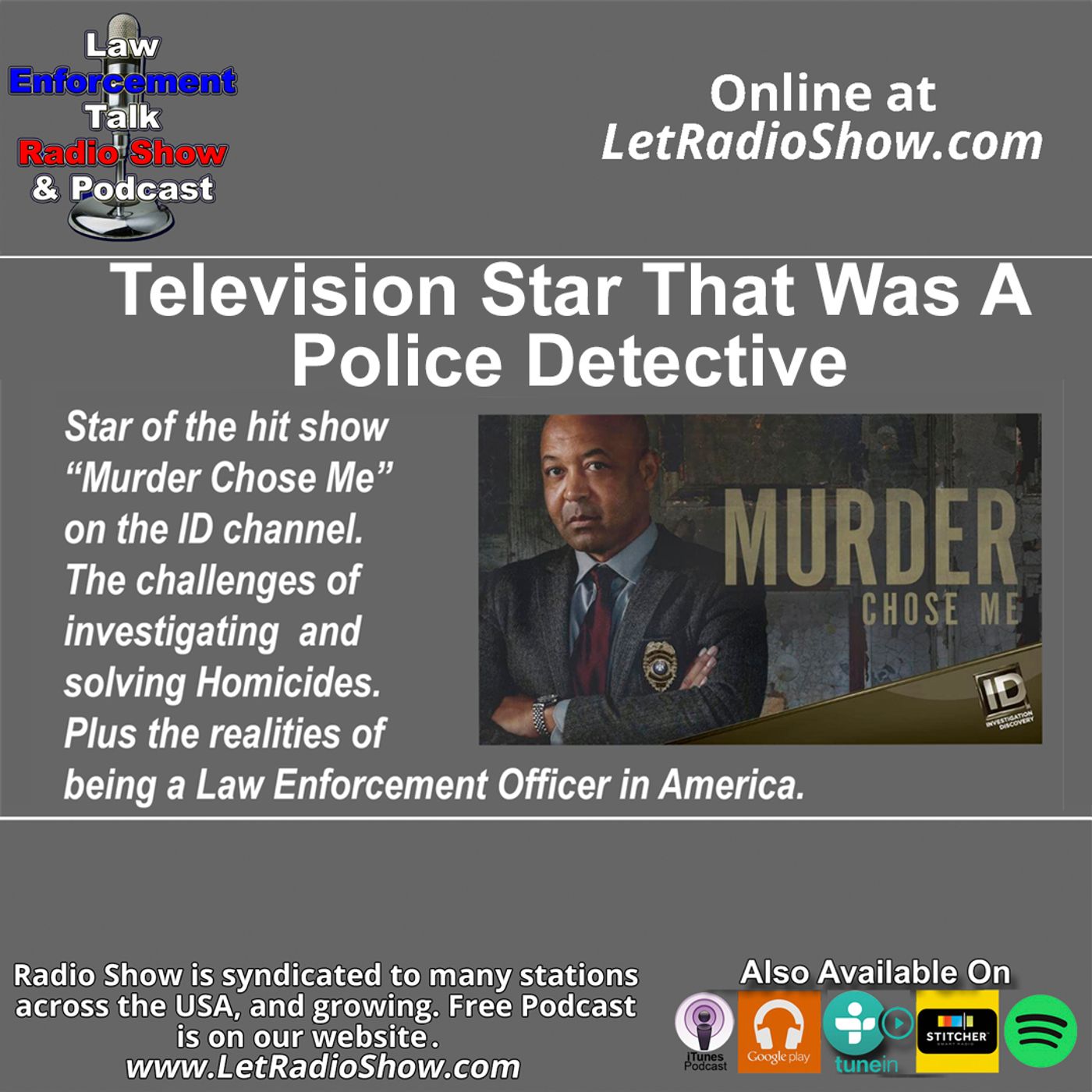
DEA and the Police in the Caribbean, Drugs, Violence. When most people imagine the Caribbean, they think of turquoise waters, white sand beaches, rum cocktails, and vibrant island music. The idea of violent crime, drugs, and federal law enforcement operations rarely comes to mind. But behind the postcard-perfect scenery, the Caribbean plays a major role in the global drug trade, and with it, comes a dangerous underworld of money, guns, and organized crime. In the Law Enforcement Talk Radio Show and Podcast promoted across their Facebook , Instagram , LinkedIn , Medium and other social media platforms.
Retired DEA Supervisory Special Agent Jack McFarland knows this world all too well. The Law Enforcement Talk Radio Show and Podcast interview, available for free on their website, on Apple Podcasts, Spotify, Youtube and more podcast platforms.
Jack spent over three decades in the trenches with the Drug Enforcement Administration (DEA). From his early days as a football coach and teacher to chasing drug traffickers through the Caribbean, his story reflects the global reach of America’s drug war, and the brave men and women fighting it on the front lines. Now retired and a keynote speaker, Jack shares stories from his work with the DEA, including international interdiction operations, violent shootouts, and the complex partnership between the DEA and the police in the Caribbean. Look for supporting stories about this and much more from Law Enforcement Talk Radio Show and Podcast in platforms like Medium , Blogspot and Linkedin .
A Hidden Drug Highway in Paradise. DEA and the Police in the Caribbean, Drugs, Violence.
“The Caribbean is beautiful, but it’s also a major hub in the global drug trade,” Jack said during a recent appearance on the Law Enforcement Talk Podcast, available on Apple, Spotify, and major TV and podcast platforms.
Much of the Caribbean lies along major smuggling routes between South America and the United States. Narcotics such as cocaine and heroin often move by sea, carried in everything from high-speed boats to drug submarines. Once in the Caribbean, the drugs are repackaged and rerouted, often with the help of armed criminal groups. Available for free on their website and streaming on Apple Podcasts, Spotify, and other podcast platforms.
As a Supervisory Special Agent with the DEA's Caribbean Division, Jack helped lead operations that intercepted everything from cartel-run aircraft to high-seas smuggling vessels. One of the division’s most notable seizures came on March 31, 2014, when the Caribbean Corridor Strike Force (CCSF) intercepted a Zodiac-type vessel off Dorado, Puerto Rico.
On board? Two Venezuelan nationals and 1,774 kilograms of cocaine.
“These arrests are a clear indication of the continued success of the Caribbean Corridor Strike Force,” said Rosa Emilia Rodríguez-Vélez, U.S. Attorney for the District of Puerto Rico. “This is just another example of the fine work our state and federal law enforcement partners accomplish every day.”
When Interdiction Turns Violent. DEA and the Police in the Caribbean, Drugs, Violence.
Not all operations end smoothly. The Law Enforcement Talk Radio Show and Podcast episode is available for free on their website , Apple Podcasts , Spotify and most major podcast platforms.
On November 17, 2022, U.S. Customs and Border Protection (CBP) agents engaged in a shootout while trying to intercept a suspicious vessel near Cabo Rojo, Puerto Rico. As agents approached, a gun battle broke out, leaving one DEA partner agent dead, others wounded, and two U.S. citizens arrested after over 1,300 kilograms of cocaine were recovered.
It's a grim reminder that the fight against drug trafficking in the Caribbean isn't just about seizures, it's a deadly, high-stakes war against violent criminals.
The Broader Impact of Crime in the Caribbean
Many are shocked to learn that the Caribbean is one of the most violent regions in the Americas. Fueled by transnational gangs, economic struggles, and a deterioration of social structures, violent crime has exploded in several countries. You can listen to his stories and interview on our website for free in addition to platforms like Apple Podcasts and Spotify, and other major podcast platforms.
In Haiti, where gangs have seized control of much of the capital, over 2,500 people were killed or injured in just the first quarter of 2024. This disturbing trend has sparked deep concern among Caribbean leaders. At a recent Caribbean Community (Caricom) summit, regional heads of state cited “levels of crime and violence... fueled in part by firearms and ammunition trafficking, transnational criminal networks, and a deterioration of social structures.” DEA and the Police in the Caribbean, Drugs, Violence.
Jack puts it bluntly: “Where there are drugs, there are guns. And with guns, there’s always violence.”
The DEA’s Mission in the Caribbean
The Drug Enforcement Administration, established in 1973 during President Nixon’s war on drugs, is the lead U.S. agency for combatting illegal narcotics. While most Americans associate DEA operations with big city drug busts or cartels, the agency plays a vital role in the Caribbean, partnering with local and international police forces to stop the flow of drugs into the U.S.
The DEA Caribbean Division covers a wide area, including Puerto Rico, the U.S. Virgin Islands, Barbados, Haiti, Jamaica, the Netherlands Antilles, Suriname, Trinidad and Tobago and others. Its mission is not just enforcement, but also coordination, training local police, gathering intelligence, and working alongside global partners.
With units like the Caribbean Corridor Strike Force, the DEA focuses on interdiction, cutting off drug shipments before they reach U.S. soil. The full podcast episode is streaming now on Apple Podcasts, Spotify, and across Facebook, Instagram, and LinkedIn.
From Football Coach to Federal Agent. DEA and the Police in the Caribbean, Drugs, Violence.
Before he was chasing smugglers, Jack McFarland was a high school teacher and football coach. His path from the classroom to DEA headquarters in Anne Arundel County, Maryland, is a testament to how varied law enforcement careers can be.
From his early work in Philadelphia to leading international operations out of Baltimore, Jack has lived a life filled with purpose, and danger.
Now retired, he uses his experience to speak, consult, and train law enforcement agencies across the country and beyond. He’s also active on various social media platforms, where he shares insights on crime, policing, and global drug trends.
Modern-Day Pirates and Real-World Consequences
While pirates might sound like a fantasy from the past, modern-day piracy is a real concern in the Caribbean. Smugglers and traffickers are often armed, mobile, and ruthless. Some target commercial vessels; others engage in violent turf wars on land. Be sure to follow the Law Enforcement Talk Radio Show and Podcast promoted across their Facebook , Instagram , LinkedIn , Medium and other social media platforms.
In fact, many violent crimes across the region are tied to gang warfare over drug territory, made more deadly by a steady influx of weapons. DEA and the Police in the Caribbean, Drugs, Violence.
The DEA, working closely with the police in the Caribbean, continues to be a frontline force in stemming this tide. But as Jack McFarland reminds us, “This isn’t a job for the faint of heart. It’s dangerous, complicated, and essential.”
Behind the island sunsets and steel drum music lies a battle that few tourists ever see. The DEA and the police in the Caribbean are locked in a constant struggle against violent drug traffickers who exploit the region’s geography for global operations.
But thanks to seasoned agents like Jack McFarland and dedicated Caribbean law enforcement officers, progress continues. Their courage and commitment protect not just U.S. borders, but the people of the Caribbean as well.
To learn more about Jack’s story and the untold battles in paradise, listen to his full interview on the Law Enforcement Talk Podcast, streaming now on Apple, Spotify, and your favorite podcast and TV platforms. DEA and the Police in the Caribbean, Drugs, Violence. The Law Enforcement Talk Radio Show and Podcast is promoted across their Facebook , Instagram , LinkedIn , Medium and other social media platforms.
Follow Jack McFarland's story on the Law Enforcement Talk Radio Show and Podcast on: their website, Facebook, Instagram, LinkedIn, X (formerly Twitter) and their other social media platforms.
For the latest news, stories, and behind-the-scenes looks at law enforcement’s fight against drug crime in the Caribbean and beyond.
Get the latest news articles, without all the bias and spin, from the Law Enforcement Talk Radio Show and Podcast on Medium , which is free.
Find a wide variety of great podcasts online at The Podcast Zone Facebook Page , look for the one with the bright green logo.
Be sure to check out our website .
Be sure to follow us on MeWe , X , Instagram , Facebook, Pinterest, Linkedin and other social media platforms for the latest episodes and news.
You can help contribute money to make the Gunrunner Movie . The film that Hollywood won’t touch. It is about a now Retired Police Officer that was shot 6 times while investigating Gunrunning. He died 3 times during Medical treatment and was resuscitated. You can join the fight by giving a monetary “gift” to help ensure the making of his film at agunrunnerfilm.com .
Background song Hurricane is used with permission from the band Dark Horse Flyer.
You can contact John J. “Jay” Wiley by email at Jay@letradio.com , or learn more about him on their website .
DEA and the Police in the Caribbean, Drugs, Violence.
Attributions
DEA Caribbean Division
DEA.gov
Hosted by Simplecast, an AdsWizz company. See pcm.adswizz.com for information about our collection and use of personal data for advertising.







